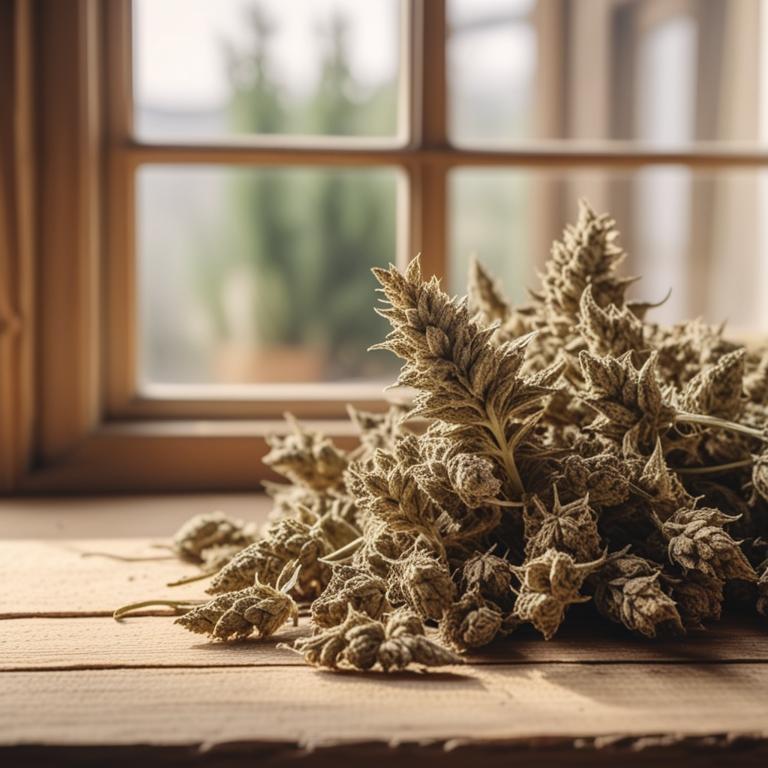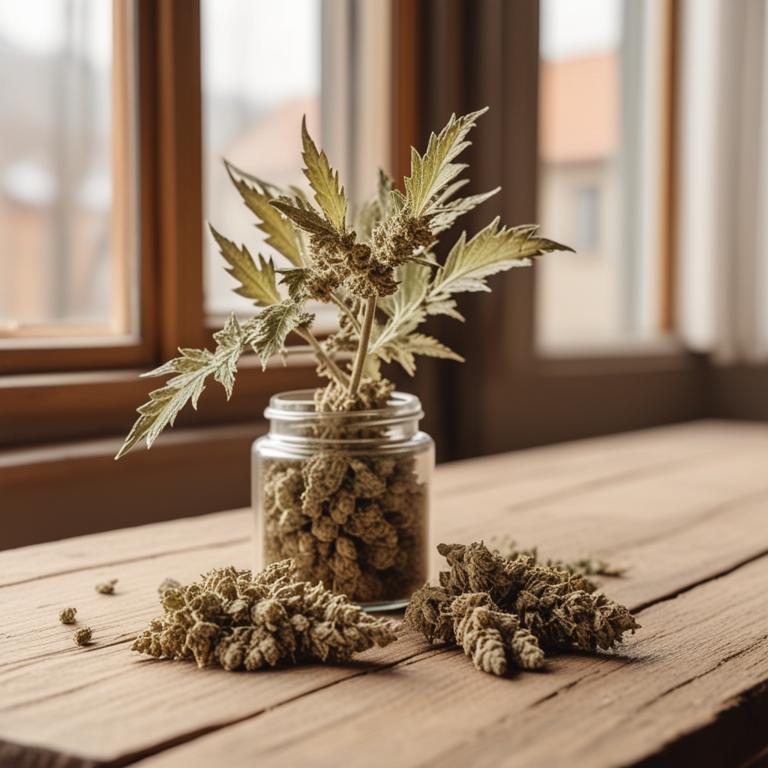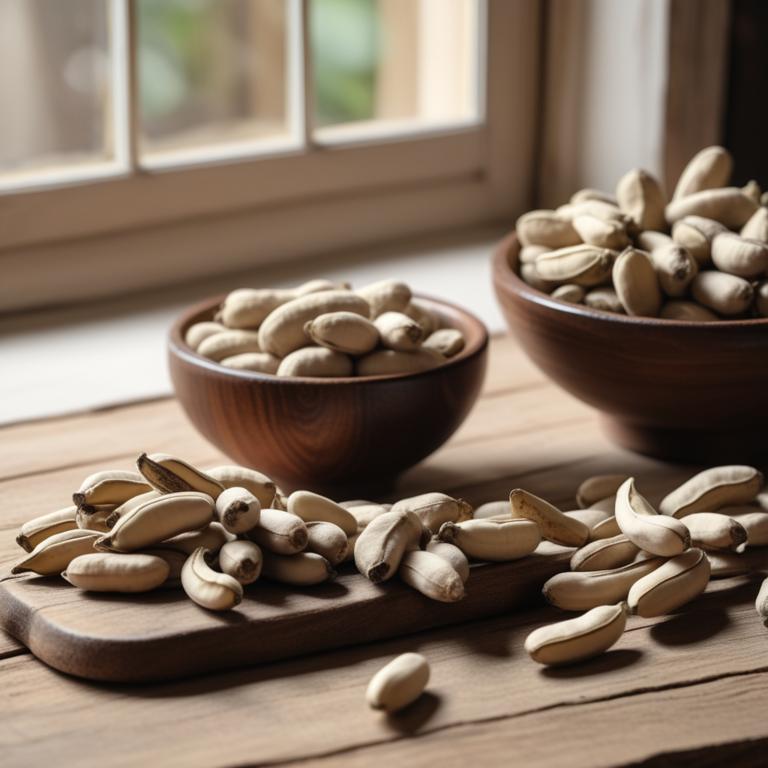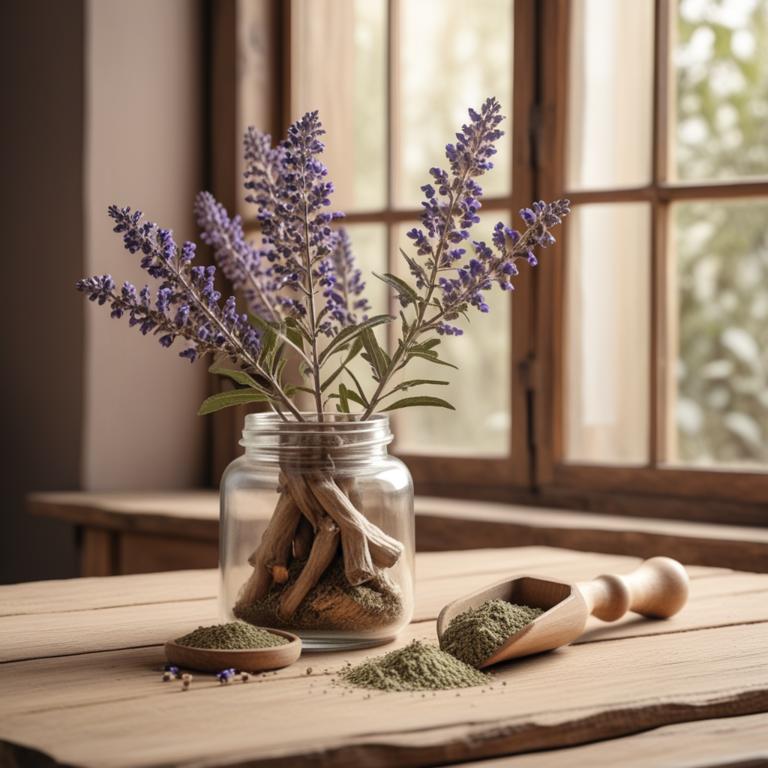Updated: Dec 1, 2024
The Science and Herbal Remedies Behind Period Cramps
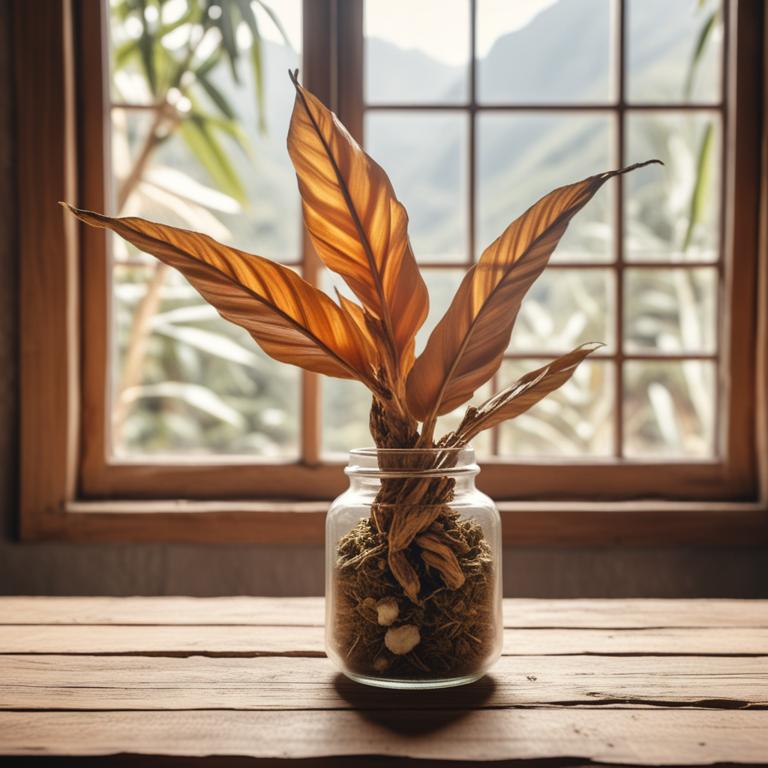
Period cramps are a common issue that many women face during their menstrual cycle.
These cramps can be so severe that they disrupt daily life, making it hard to focus, work, or even sleep. They are usually caused by the uterus contracting to shed its lining, but hormonal changes and underlying medical conditions can also contribute to their severity. Herbal remedies have been used for centuries to alleviate period cramps. Certain herbs, like ginger, have anti-inflammatory properties that can help reduce cramp intensity.
Peppermint oil, with its soothing effects, can also ease discomfort. Meanwhile, cramp bark and wild yam are known for their ability to relax the uterine muscles, providing relief from cramps. These healing herbs can be prepared in various ways, such as teas, capsules, or topical creams. Drinking ginger tea or peppermint tea can be a gentle way to soothe cramps, while cramp bark tincture can be taken orally to ease symptoms.
Some women also find relief by applying topical creams or oils, like wild yam salve, directly to the lower abdomen.
Table of Contents
What is behind period cramps?
The main causes of period cramps are a combination of physiological changes in the body that occur during the menstrual cycle.
Hormonal Imbalance is one of the main causes. When the levels of estrogen and progesterone hormones drop, it can cause the uterine muscles to contract, leading to pain. These hormonal fluctuations are a natural process, but they can be uncomfortable for some women. Another cause is Uterine Contractions, which are involuntary muscle spasms in the uterus. As the uterus contracts, it can cause the blood vessels to constrict, leading to pain and discomfort. These contractions are a normal part of the menstrual cycle, but they can be severe for some women. Prostaglandins are hormone-like substances that are produced by the lining of the uterus.
When the uterus sheds its lining during menstruation, prostaglandins are released, causing the uterine muscles to contract and leading to pain. Prostaglandins play a crucial role in the menstrual cycle, and their release is a natural process. Ovulation, or the release of an egg from the ovary, can also contribute to period cramps. During ovulation, the uterine lining thickens in preparation for a potential pregnancy. If the egg is not fertilized, the uterine lining sheds, leading to prostaglandin release and uterine contractions. Lastly, the Uterine Lining, also known as the endometrium, is the layer of tissue that lines the uterus. During menstruation, the uterine lining sheds, leading to bleeding and pain.
The shedding of the uterine lining is a natural process, but it can be uncomfortable for some women.
What are the advantages of using herbs as a natural remedy for period cramps?
Using herbs for period cramps can be a big help.
They can reduce pain and discomfort, making it easier to get through the day. Some herbs have anti-inflammatory properties, which can lower swelling and ease crampy feelings.
Others have a calming effect, helping to relax the body and mind. These herbs can also help to regulate hormones and improve digestion, which can be a big relief during menstruation. Many people find that using herbs for period cramps allows them to manage their symptoms more naturally, without relying on medications.
As a result, they can feel more in control and comfortable during this time of the month.
What are the top medicinal herbs for managing period cramps?

Herbs have been used for centuries to help with period cramps, and for good reason.
Zingiber officinale, or ginger, is a great example. It contains compounds that help reduce inflammation and pain, making it a natural anti-inflammatory. When consumed as tea or in capsule form, ginger can help ease cramping and discomfort. Angelica sinensis, also known as dong quai, is another herb that's been used to help with menstrual issues.
It has antispasmodic properties, which means it can help relax muscles and reduce cramping. Ginkgo biloba is often taken for its ability to improve blood flow, but it can also help with period cramps by increasing blood flow to the uterus and reducing inflammation. Glycyrrhiza glabra, or licorice root, has anti-inflammatory properties and can help soothe the stomach, which can be irritated by period cramps. Finally, Curcuma longa, or turmeric, contains curcumin, a powerful anti-inflammatory compound that can help reduce pain and inflammation.
When combined, these herbs can be a powerful natural remedy for period cramps, providing relief without harsh chemicals or side effects.
What are the top herbal preparations used to treat period cramps?
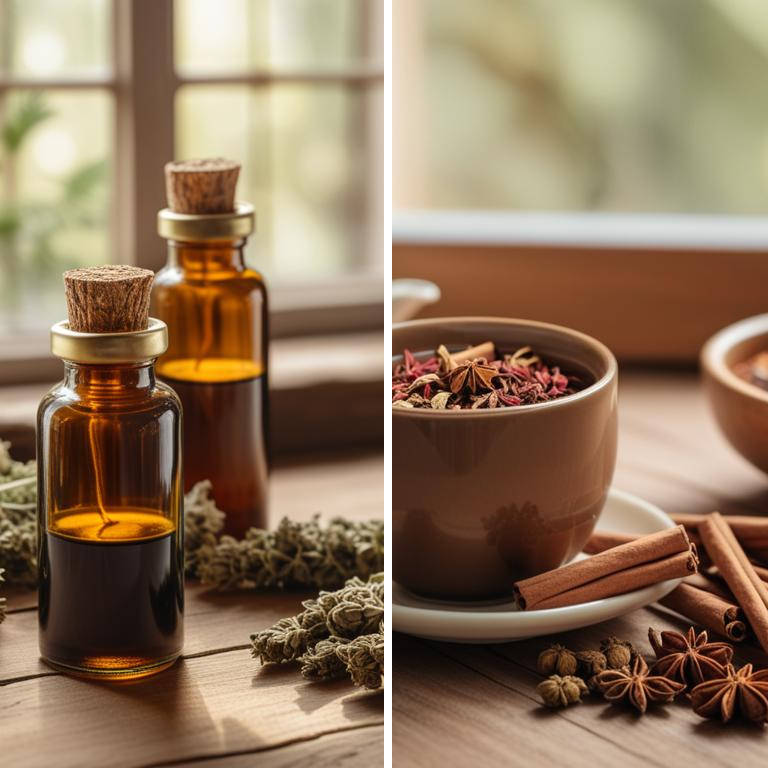
Herbal preparations can be really helpful in relieving period cramps.
A decoction is a liquid made by steeping herbs in hot water, which is great for cramps because it allows the active ingredients to release easily into the body. You can use a decoction as a warm compress to soothe your lower abdomen, or drink it as a tea to help ease cramps from the inside out. A tincture is a concentrated liquid extract of herbs that can be taken in small doses to help manage cramps. Tinctures work quickly because they're easily absorbed by the body, and they can be combined with other herbs to create a customized blend that suits your needs. Herbal capsules are another option for taking herbs for period cramps. Capsules are a convenient way to get the benefits of herbs without having to drink a tea or make a decoction.
They're also easy to take on-the-go, which is great if you're not feeling up to cooking or drinking something. Drinking herbal tea is a popular way to relieve period cramps, and for good reason. Teas are easy to make and can be sipped on throughout the day to provide ongoing relief. Some herbs, like ginger and peppermint, have natural anti-inflammatory properties that can help ease cramps. A salve is a topical preparation that can be applied directly to the skin to relieve cramps. Salves are made by infusing herbs in a carrier oil, which is then applied to the lower abdomen to provide relief.
This is a great option if you prefer to focus on the physical sensation of cramps rather than their emotional impact.
Additional Resources:
Can you tell me which herbs to avoid if I have period cramps?
If you're experiencing period cramps, it's best to steer clear of Cinchona officinalis.
This herb contains compounds that can stimulate the uterus and make cramps worse. Paeonia lactiflora, on the other hand, is often used to treat menstrual issues, but it can also have the opposite effect if you're already experiencing severe cramps.
It can slow down blood flow and worsen the cramping. Vitex agnus-castus is sometimes used to regulate menstrual cycles, but if you're already experiencing period cramps, it can disrupt your hormone balance and make cramps more intense. Aristolochia clematitis contains a toxic compound that can harm your kidneys and worsen menstrual issues, including cramps.
Hydrastis canadensis, also known as goldenseal, can cause uterine contractions, which can make period cramps more severe.
FAQ
Are there any specific herbs that can prevent period cramps?
Ginger and turmeric have anti-inflammatory properties that may help ease period cramps.
They contain compounds called gingerols and curcumin, which can reduce pain and discomfort. Some people also find that drinking raspberry leaf tea helps relax the uterine muscles and reduce cramping.
These herbs have been used for centuries to alleviate period symptoms.
Is it safe to use herbal remedies for period cramps during pregnancy?
It's generally best to be cautious with herbal remedies during pregnancy.
Some herbs, like pennyroyal and blue cohosh, can cause problems by affecting the uterus or blood pressure. Ginger and red clover may be safe in small amounts, but it's hard to know the exact effects.
Better to stick with what's proven to be safe.
Are there any herbs that can reduce the frequency of period cramps?
Ginger has been shown to help ease period cramps in some women.
It's thought that its anti-inflammatory properties can help relax the uterine muscles and reduce discomfort. Many people also find relief from cramps with feverfew, which may help block pain-causing chemicals in the body.
These herbs might provide some relief, but results can vary.
Can i combine different herbal remedies for period cramps?
Yes, you can combine different herbal remedies for period cramps.
Some people find relief by mixing ginger and peppermint to ease stomach discomfort and bloating. You can also try combining cramp bark with chasteberry to help relax the uterus and reduce cramp severity.
Just remember to start with small amounts and adjust as needed.
Related Articles
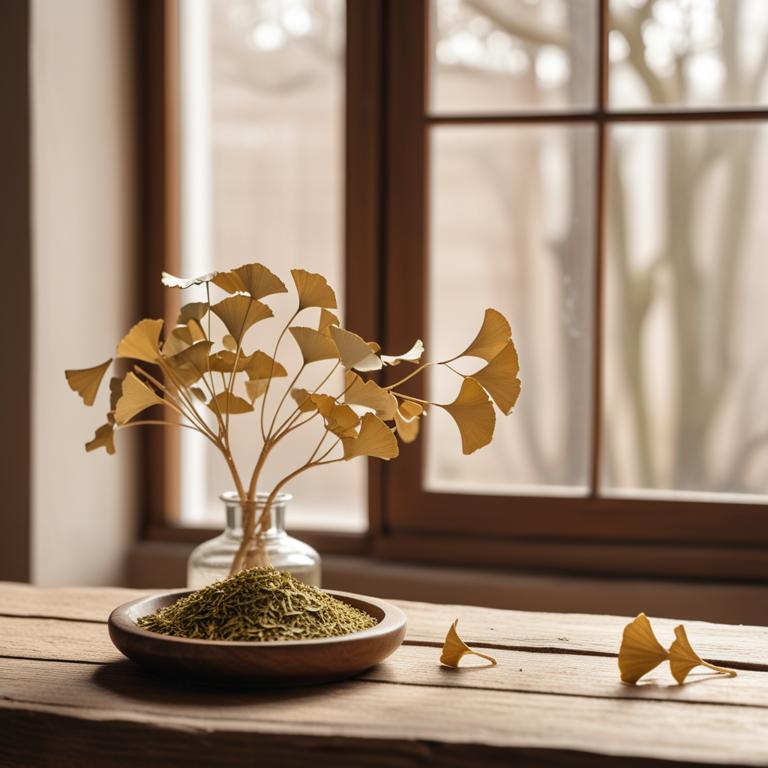
Amenorrhea Causes, Symptoms, and Treatment with Medicinal Herbs
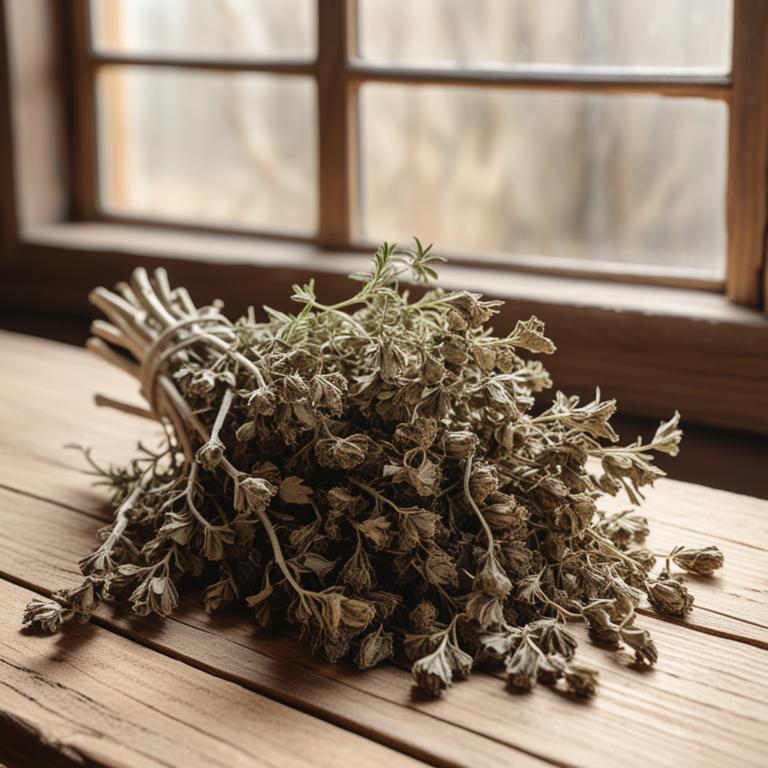
Low Sperm Count: Exploring the Reasons, Herbal Solutions, and Preparations
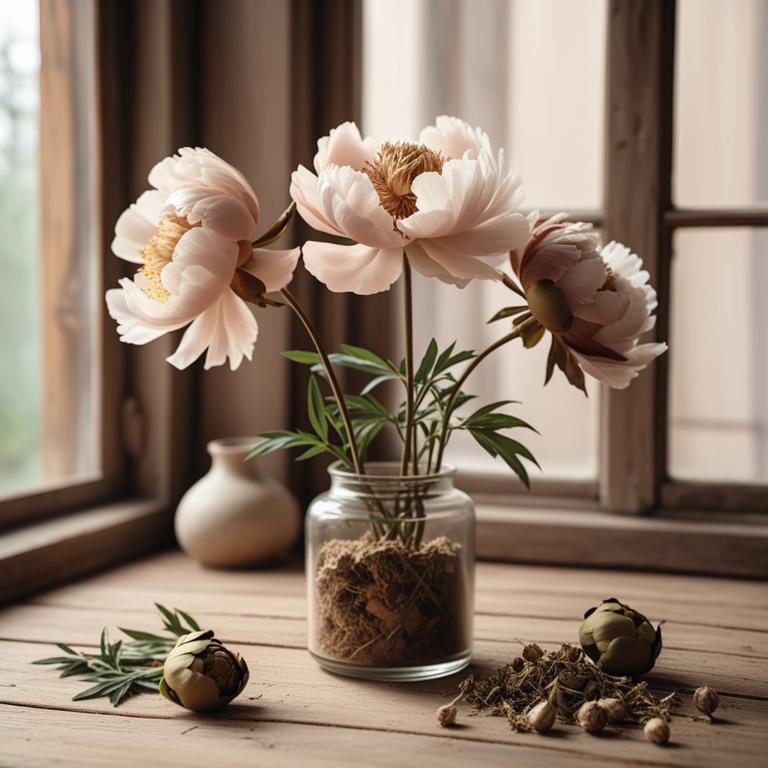
Understanding Endometriosis Pain: Exploring Causes and Herbal Remedies
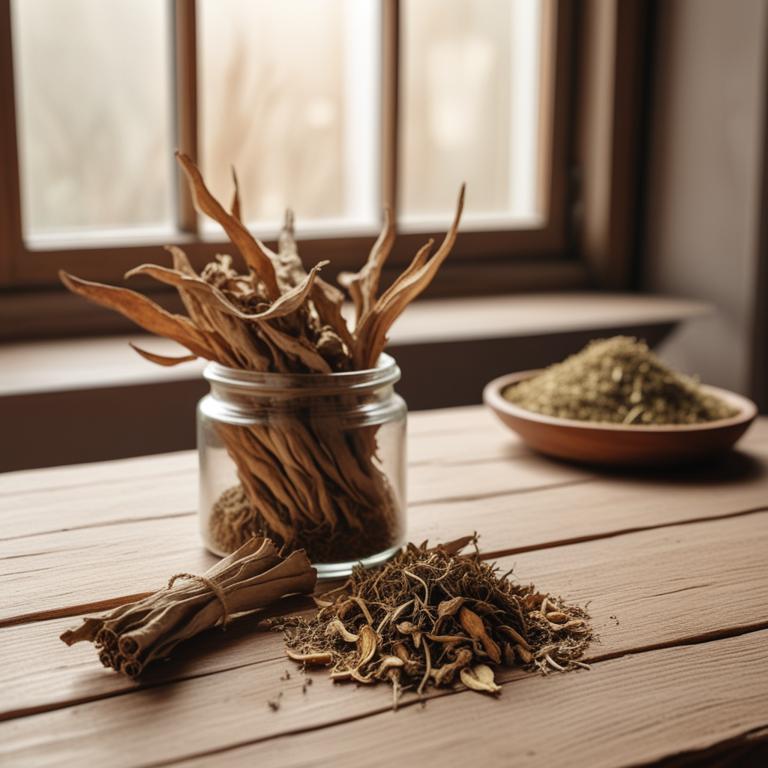
Menstrual Cramps: Understanding the Causes and Finding Relief with Medicinal Herbs
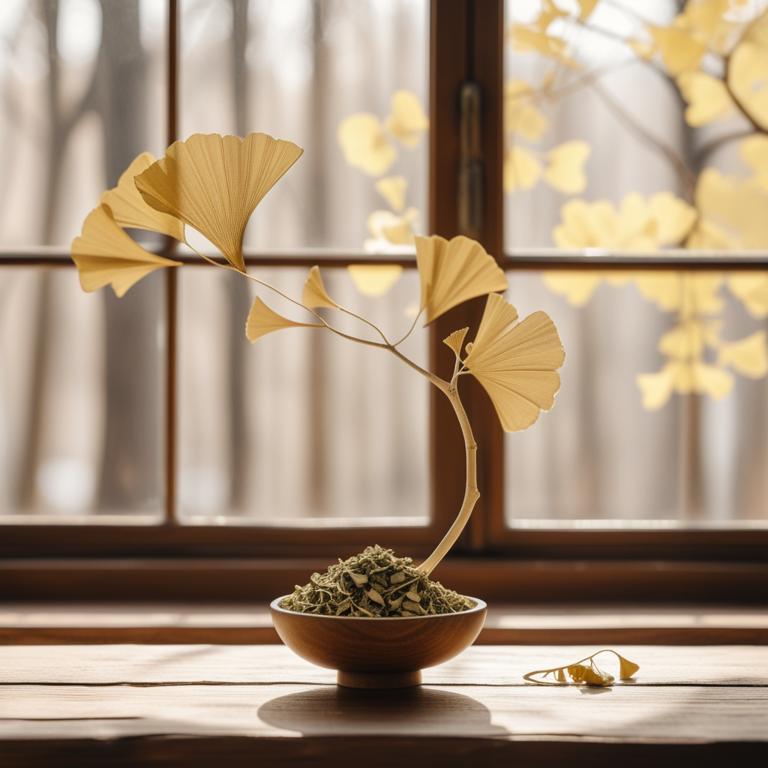
The Causes and Natural Relief of Ovulation Pain
